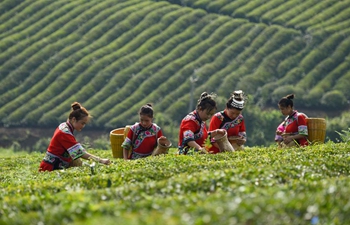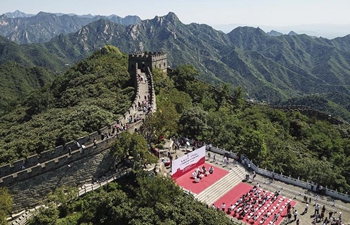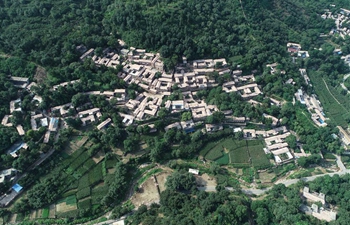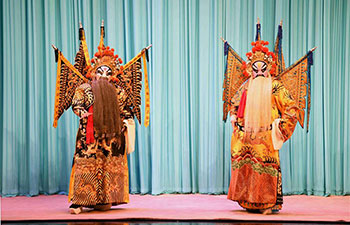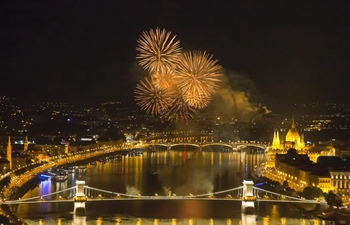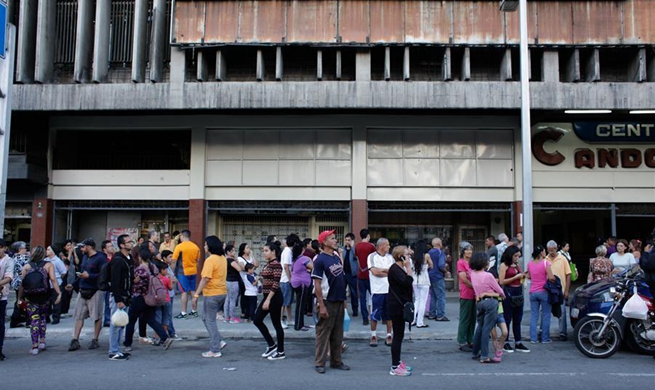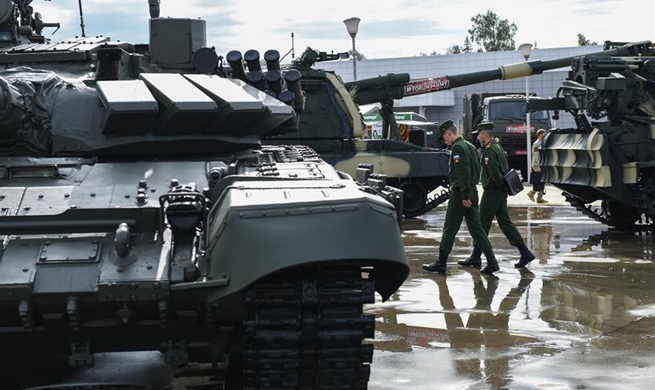By Misbah Saba Malik
ISLAMABAD, Aug. 22 (Xinhua) -- Gul Khan drove his herd of more than 100 sheep all the way from Pakistan's southwest Balochistan province to the country's capital Islamabad in search of potential buyers ahead of the Eid-ul-Adha festival in the Muslim-dominated country.
In talks with Xinhua in a cattle market in Islamabad, Khan said that he buys animals from farmers in Balochistan and sells them in the capital to make a profit of at least Rs. 1500-3000 (21.4-42.9 U.S. dollars) on each sheep.
Khan added that Eid is the best time of the year for cattle traders like him who bring animals from villages to earn good money.
Eid-ul-Adha festival is celebrated from the 10th to 12th of the last month of the Islamic calendar. During the festival, affluent people slaughter animals and distribute them to their relatives and poor people.
This year, the festival will be celebrated across the country from Aug. 22-24, and people are likely to spend billions of rupees on buying cattle to slaughter and splurging money on fancy clothes, shoes, and other accessories.
Malik Sohail Hussain, chairman coordination Federation of Pakistan Chamber of Commerce and Industry (FPCCI), told Xinhua that this year Rs. 3 billion (24 million U.S. dollars) is likely to be spent on sacrificial animals in the country during the Eid festival.
He said that Eid is the only event during the year when the tremendous amount of money flows from urban areas to rural areas as most of the animals sold during the time are kept and raised in villages and sold in cities at the festival.
However, Faisal Shahji, Head of Research, Standard Capital Securities, a brokerage house in Islamabad, told Xinhua that people are likely to spend more than three billion U.S. dollars on overall activities at Eid, including animals, transportation, feed, hides and the butchering the cattle.
"Last year people spent roughly Rs. 350 billion (2.8 billion U.S. dollars) on the Eid festival, and this year due to rise in the U.S. dollar and the inflation factor this figure is likely to hit Rs. 370 billion (more than 3 billion USD)."
He went on to say that millions of people sacrifice animals every year and a normal goat costs 15,000-20,000 (up to 286 U.S. dollars) to them whereas the price of cows range from 80,000-200,000 (up to 2,861 U.S. dollars), so the overall money exchanged could be around Rs. 370 billion (5.2 billion U.S. dollars).
Usman Bux came from a small village in Jhelum district of the country's east Punjab province to Islamabad to sell a bull he spent two years to raise.
"I have been raising him up since he was a small calf, to sell him on Eid. In our city, I was offered Rs. 95 thousand (about 770 U.S. dollars), and here I have already been offered 120,000 (980 U.S. dollars), I am expecting to get a higher rate as there are still a couple of days to Eid."
The FPCCI official said that this Eid also promotes cattle farming in the country as meeting the demand of supplying cattle on Eid is a yearlong process, adding that farmers buy small animals right after Eid and keep on raising them the whole year to sell it at Eid.
Eid also helps butchers to net a significant amount of money as they charge the desired amount from people to slaughter their animal.
Hussain said that the butchers charge whatever rates they want. Some of them are trained while others are common laborers who become part-time butchers to earn money during the festival.
People who visited cattle market for buying the animals said that this year the prices of animals are much higher compared to last year.
Shahryar Afridi, a businessman, searching for the animal in a cattle market in Islamabad, told Xinhua that the cattle traders are aware of the fact that people living in cities do not have access to ordinary farmers who raise cattle in their houses and farms, so they charge a hefty amount of money to them.
He said that there should be a regulatory body on cattle traders and butchers during Eid to keep a check on the prices they charge the public.




